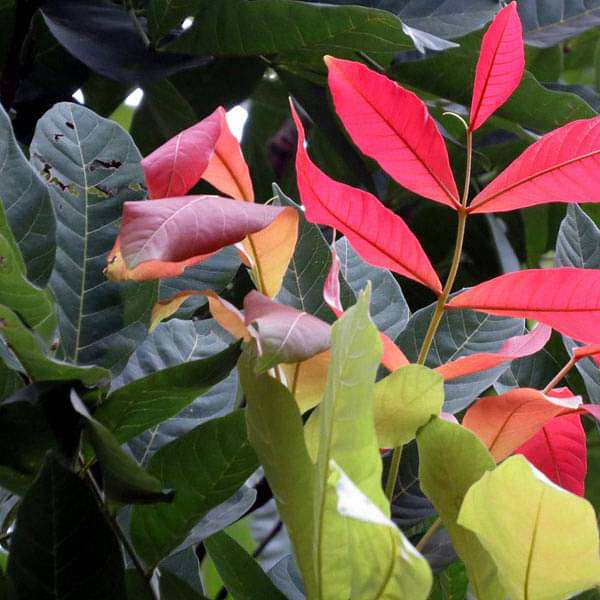
Kusum Tree, Ceylon Oak - 0.5 kg Seeds
(MRP Inclusive of all taxes)
- Shipping ₹79 for entire order
- Country of origin: India

(MRP Inclusive of all taxes)
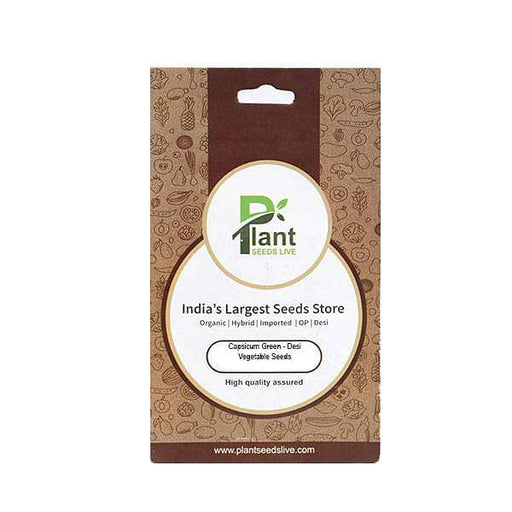
 Save 25%
Save 25%
Capsicum Green - Desi Vegetable Seeds Capsicum Green, also known as bell pepper, is a vibrant and nutritious addition to your garden. Thes...
View full details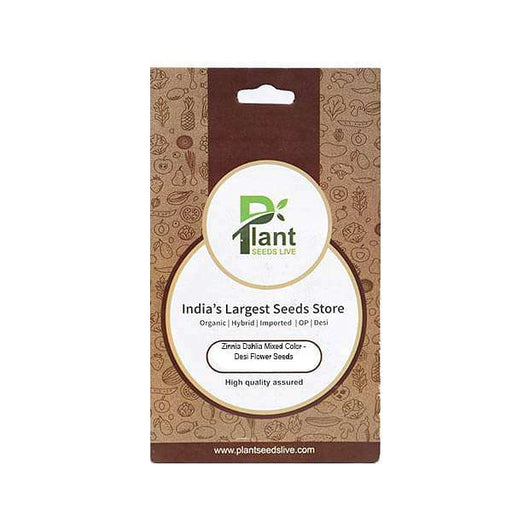
 Sold out
Sold out
Zinnia Dahlia Mixed Color - Desi Flower Seeds Transform your garden into a vibrant tapestry of colors with our Zinnia Dahlia Mixed Color -...
View full details
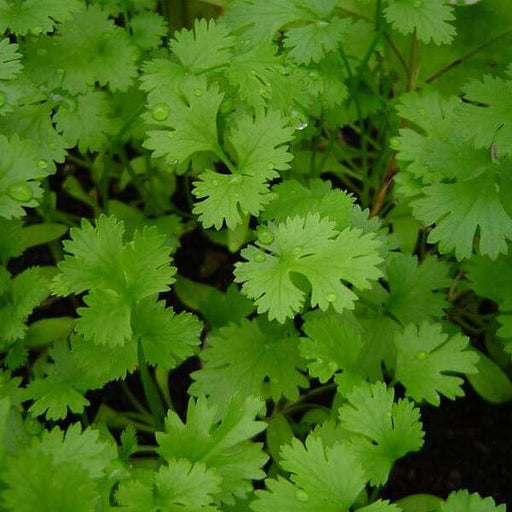 Sold out
Sold out
Coriander Panipat - Desi Vegetable Seeds Coriander Panipat is a premium variety of coriander seeds, cherished for its aromatic leaves and ...
View full details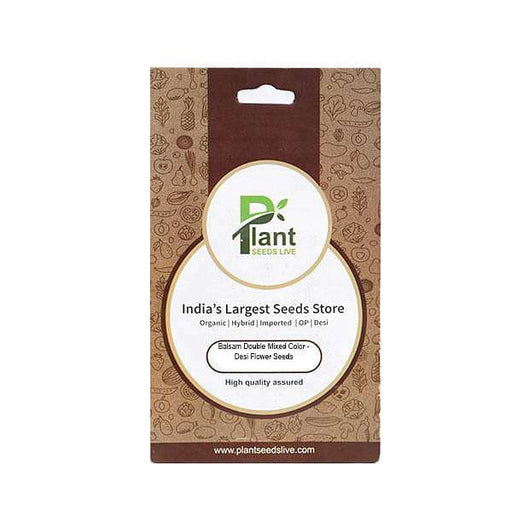
 Save 25%
Save 25%
Balsam Double Mixed Color - Desi Flower Seeds Discover the vibrant beauty of Balsam Double Mixed Color - Desi Flower Seeds, a delightful a...
View full details
 Sold out
Sold out
Tomato Pusa Ruby - Desi Vegetable Seeds The Tomato Pusa Ruby is a premium variety of tomato seeds, renowned for its vibrant red color, jui...
View full details
 Save 25%
Save 25%
Cherry Tomato, Cherry Tomato Honey - Vegetable Seeds Discover the delightful world of Cherry Tomato Honey seeds, perfect for home gardener...
View full details
 Save 25%
Save 25%
Spinach All Green - Desi Vegetable Seeds Introducing the Spinach All Green - Desi Vegetable Seeds, a premium variety of spinach that thriv...
View full details
 Save 25%
Save 25%
Capsicum Green - Desi Vegetable Seeds Capsicum Green, also known as bell pepper, is a vibrant and nutritious addition to your garden. Thes...
View full details
 Sold out
Sold out
Coriander Panipat - Desi Vegetable Seeds Coriander Panipat is a premium variety of coriander seeds, cherished for its aromatic leaves and ...
View full details
 Sold out
Sold out
Tomato Pusa Ruby - Desi Vegetable Seeds The Tomato Pusa Ruby is a premium variety of tomato seeds, renowned for its vibrant red color, jui...
View full details
 Save 25%
Save 25%
Cherry Tomato, Cherry Tomato Honey - Vegetable Seeds Discover the delightful world of Cherry Tomato Honey seeds, perfect for home gardener...
View full details
 Save 25%
Save 25%
Spinach All Green - Desi Vegetable Seeds Introducing the Spinach All Green - Desi Vegetable Seeds, a premium variety of spinach that thriv...
View full details
 Save 25%
Save 25%
Tomato Ped - Desi Vegetable Seeds Introducing the Tomato Ped - Desi Vegetable Seeds, a premium selection of heirloom tomato seeds that pro...
View full details
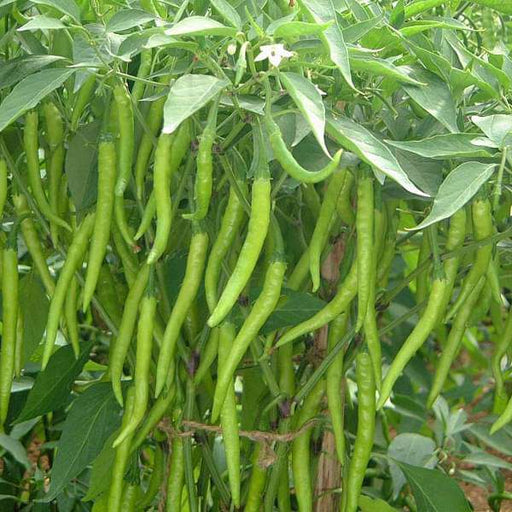 Sold out
Sold out
Chilli Surajmukhi - Desi Vegetable Seeds Introducing the Chilli Surajmukhi, a unique variety of desi vegetable seeds that brings a burst o...
View full details
 Save 25%
Save 25%
Carrot Red Long - Desi Vegetable Seeds Introducing the Carrot Red Long - Desi Vegetable Seeds, a premium variety known for its vibrant col...
View full details
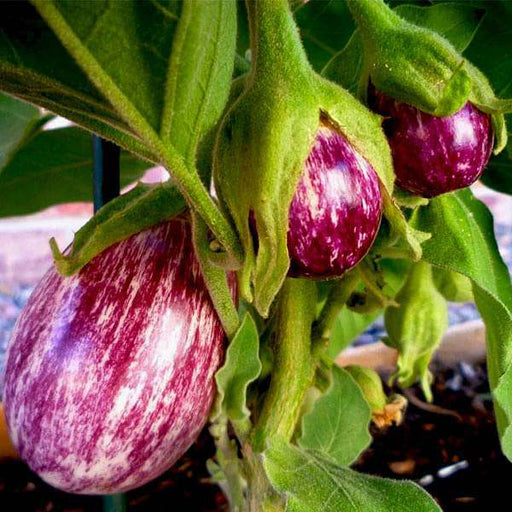 Save 25%
Save 25%
Brinjal Purple Round - Desi Vegetable Seeds Discover the rich flavors and vibrant colors of Brinjal Purple Round, a staple in Indian cuisi...
View full details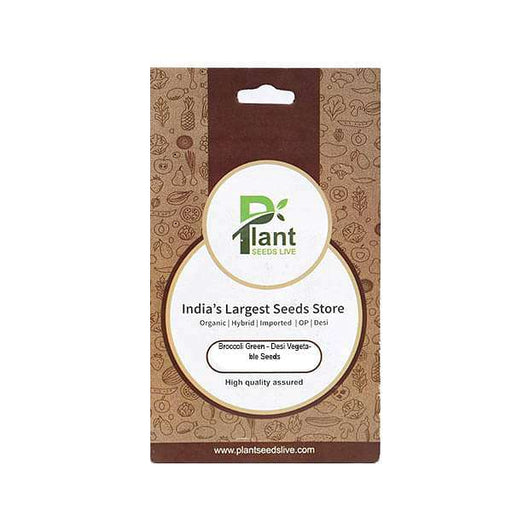
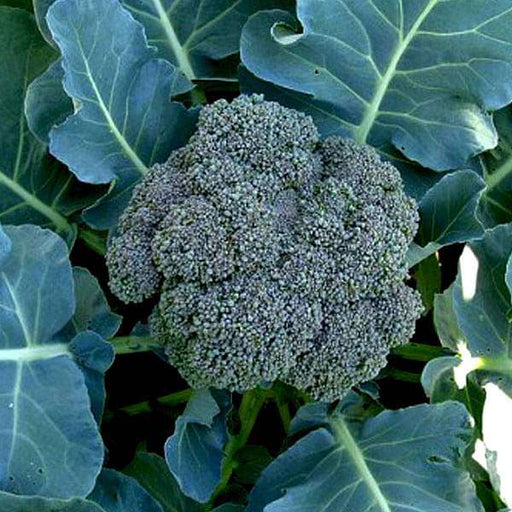 Save 25%
Save 25%
Broccoli Green - Desi Vegetable Seeds Discover the vibrant world of Broccoli Green with our premium Desi Vegetable Seeds. Known for its ri...
View full details
 Save 35%
Save 35%
Best 6 Plants for Perfect Indoor Garden Transform your living space into a lush oasis with our curated collection of the Best 6 Plants for a...
View full details
 Save up to 50%
Save up to 50%
Mini Succulent Garden Pack Transform your space with our Mini Succulent Garden Pack, featuring a delightful collection of 4 any variety beautiful s...
View full details
 Save 30%
Save 30%
5 Best Fragrant Plants Transform your garden or indoor space into a fragrant paradise with our curated selection of the 5 Best Fragrant Plants. Th...
View full details
 Save 24%
Save 24%
Set of 2 Bonsai Looking Grafted Adeniums Transform your indoor or outdoor space with our exquisite Set of 2 Bonsai Looking Grafted Adenium...
View full details Save 45%
Save 45%
Top 4 Die Hard Succulents Pack Transform your indoor or outdoor space with our Top 4 Die Hard Succulents Pack, featuring a curated selecti...
View full details
 Save 30%
Save 30%
5 Best Indoor Plants Pack Transform your living space into a lush oasis with our '5 Best Indoor Plants Pack.' This carefully curated collection fe...
View full details
 Save 25%
Save 25%
Set of 4 Evergreen Air Purifier Plant Pack Transform your indoor space into a lush, green oasis with our Set of 4 Evergreen Air Purifier Pla...
View full details| SrNo | Item Name |
|---|---|
| 1 | Kusum Tree, Ceylon Oak - 0.5 kg Seeds |
The Kusum Tree, also known as Ceylon Oak (Schleichera oleosa), is a magnificent deciduous tree native to the tropical regions of South Asia. Renowned for its beautiful foliage and valuable timber, this tree can grow up to 30 meters tall, making it a stunning addition to any landscape. The seeds offered here are of premium quality, ensuring a high germination rate and robust growth.
What sets the Kusum Tree apart is its ecological significance and versatility. The tree is not only a source of high-quality timber but also produces edible seeds and oil, which are used in traditional medicine. Its dense canopy provides excellent shade, making it ideal for parks and gardens.
Special features of the Kusum Tree include its ability to thrive in various soil types and its resistance to drought, making it a sustainable choice for reforestation and landscaping projects. Additionally, the tree plays a vital role in supporting local wildlife, providing habitat and food for various species.
The Kusum Tree plays a crucial role in combating soil erosion and improving soil fertility. Its deep root system helps stabilize the soil, while its leaves contribute organic matter when they fall, enriching the ground. By planting Kusum Trees, you are not only enhancing your landscape but also contributing to a healthier ecosystem.
The Kusum tree, also known as the Ceylon Oak, is not just a pretty face in the botanical world. This tree is a multitasker, offering a plethora of benefits. From its stunning foliage that can make any garden look like a tropical paradise to its seeds that are a treasure trove of nutrients, the Kusum tree is the ultimate green companion. Plus, its wood is prized for its durability, making it a favorite among carpenters and builders. So, if you’re looking to impress your friends with your eco-friendly choices, planting a Kusum tree is a surefire way to go green and show off your tree-hugging credentials.
The Ceylon Oak, or Kusum tree, is like the cool kid in the forest. With its broad canopy and striking leaves, it stands out in any landscape. This tree can grow up to 30 meters tall, making it a towering presence that can provide ample shade for those lazy summer picnics. Its bark is a rugged beauty, and the flowers? Oh, they’re like nature’s confetti, adding splashes of color to your garden. If you’re looking for a tree that combines beauty and brawn, the Ceylon Oak is your go-to.
If you’re thinking of planting a Kusum tree, you’ll want to roll out the red carpet for it. This tree loves a sunny spot with well-drained soil, so make sure it’s not stuck in a soggy corner of your yard. It’s like a diva that thrives in the limelight, so give it plenty of space to spread its roots and branches. With the right conditions, you’ll be rewarded with a majestic tree that will have your neighbors green with envy.
Germinating Ceylon Oak seeds is like hosting a party for nature. First, soak those seeds in water for a day to get them all pumped up. Then, plant them in a warm, sunny spot, and watch the magic happen. In a few weeks, you’ll see little green shoots popping up, ready to take on the world. Just remember, patience is key; good things come to those who wait, especially when it comes to growing your own Ceylon Oak.
The Kusum tree is the Swiss Army knife of the plant world. Its seeds can be used for oil extraction, while its wood is perfect for making furniture that will last longer than your last relationship. The leaves can be used in traditional medicine, and the flowers? They’re just there to look pretty and attract pollinators. So, whether you’re looking to furnish your home or whip up a herbal remedy, the Kusum tree has got you covered.
Maintaining a Ceylon Oak is like keeping a pet; it requires love and attention but isn’t too demanding. Regular watering, especially in the early stages, will help it thrive. Pruning is essential to keep its shape and encourage healthy growth, but don’t go overboard; we’re not trying to give it a buzz cut. With a little TLC, your Ceylon Oak will flourish and become the envy of the neighborhood.
The Kusum tree is like the superhero of the environment. It helps combat soil erosion with its robust root system and provides habitat for various wildlife. Plus, it’s a carbon sink, absorbing CO2 and releasing oxygen like a pro. Planting a Kusum tree is not just a gift to your garden; it’s a gift to Mother Earth. So, if you want to be a tree-hugging hero, this is the tree for you.
Ceylon Oak wood is the stuff of legends. Known for its strength and durability, it’s the go-to choice for furniture makers and builders alike. The wood has a beautiful grain that adds character to any piece, making it a favorite for those who appreciate craftsmanship. Plus, it’s resistant to pests, so you won’t have to worry about those pesky wood-boring bugs ruining your masterpiece. If you’re in the market for quality wood, look no further than the Ceylon Oak.
The Kusum tree holds a special place in various cultures, often symbolizing strength and resilience. In some regions, it’s considered sacred, and its wood is used in traditional rituals. Planting a Kusum tree can be a way to connect with your roots and honor the traditions of those who came before you. So, if you’re looking to add a touch of cultural flair to your garden, the Kusum tree is a fantastic choice.
If you’re looking to elevate your landscaping game, the Ceylon Oak is your secret weapon. Its majestic height and broad canopy make it perfect for creating shade gardens or as a focal point in larger landscapes. Pair it with colorful flowering plants for a stunning contrast, or use it to frame your property. With a Ceylon Oak in your yard, you’ll have a landscape that’s the envy of the block.
Propagating the Kusum tree is like starting a family tree, and there are a couple of ways to do it. You can go the seed route, soaking and planting them for a new generation of trees. Alternatively, you can take cuttings from a mature tree and encourage them to root in a pot. Whichever method you choose, you’ll be on your way to creating a lush green legacy that will last for generations.
The Kusum Tree, also known as Ceylon Oak, is a tropical beauty that boasts stunning foliage and a robust trunk. It’s like the tree version of a bodybuilder, perfect for shade and timber. Plus, it’s a great conversation starter at garden parties!
Planting Kusum Tree seeds is as easy as pie! Just find a sunny spot, dig a hole, drop in the seeds, and cover them lightly with soil. Water them like you’re nurturing a diva, and soon you’ll have a tree that’s the envy of the neighborhood!
Kusum Trees are like nature’s multitaskers! They provide shade, timber, and even medicinal benefits. Plus, they attract birds and butterflies, turning your garden into a wildlife wonderland. Who knew planting a tree could make you the local eco-hero
Patience is a virtue, my friend! Kusum Trees can take anywhere from 3 to 5 years to reach their full glory. But don’t worry, while you wait, you can practice your tree-hugging skills and impress your friends with your gardening wisdom!
Kusum Trees are not picky eaters! They thrive in well-drained, loamy soil but can tolerate a variety of conditions. Just make sure it’s not a swamp; they prefer a nice, dry cocktail over a muddy mess!
Kusum Trees are sun worshippers! They love basking in full sunlight for at least 6 hours a day. So, if you’re looking for a tree that enjoys a good tan, this is your go-to green companion!
Absolutely! Kusum Trees are like the survivalists of the plant world. Once established, they can withstand drought conditions, making them perfect for those who forget to water their plants. Just don’t leave them hanging for too long!
Fear not! Kusum Trees are not the invasive type. They’re well-behaved and won’t take over your garden like an overzealous relative at a family reunion. They grow beautifully without crowding out other plants, making them a great addition to your landscape.
Caring for your Kusum Tree is a breeze! Water it regularly, especially during dry spells, and give it a little fertilizer love in the growing season. Prune it occasionally to keep it looking sharp, and you’ll have a tree that’s the talk of the town!
Yes, you can! Growing Kusum Trees in pots is like giving them a stylish apartment. Just ensure the pot is large enough for their roots to stretch out. They’ll appreciate the cozy living space and still grow into magnificent trees!
Kusum Trees are generally pest-resistant, but keep an eye out for the usual suspects like aphids and caterpillars. If they crash the party, a little neem oil or insecticidal soap will send them packing. Your tree deserves a pest-free zone!
You can find Kusum Tree seeds at local nurseries or online gardening stores. Just make sure you’re buying from a reputable source, so you don’t end up with a bag of mystery seeds. Happy planting!